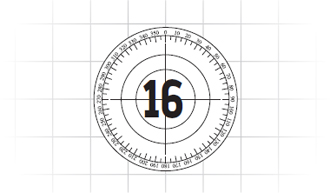
The following morning, Dillon woke properly. His mouth and throat were so dry all he could manage was a hoarse whisper. He was allowed to have a drink of water, and was told that he could have a snack later in the day.
The nurses soon had him propped up and sitting in bed.
‘Wow,’ said Mum, staring at him, Dad beside her. ‘I think you’re looking better already. Your skin isn’t as yellow.’ She came right up to the bed and stared at his face. ‘And your eyes … they’re white.’
A little while later Doc J stopped in to check on him. Dillon noticed that his bow tie was bright orange today. He looked over the charts at the foot of Dillon’s bed, where the nurses recorded their obs. He nodded and made ‘uh-huh’ sounds as he adjusted his glasses. ‘I am very pleased with your progress. Everything seems to be going well.’
‘You have … interesting ties,’ said Dillon.
Doc J smiled. ‘Bow ties are cool!’ He hung the chart back in place and pulled up a seat. ‘Right,’ he said, looking from Dillon to his parents and back again. ‘I’m sure that you’re aware of how things will go from here on in. But I’d feel better if I went over it all with you anyway.’
Dillon nodded.
‘The transplant was successful,’ continued Doc J, ‘and there is certainly no sign of rejection. We will, of course, continue to monitor you for the next few days before you are discharged. After which, you will be able to live a fairly normal life, with a couple of provisos. Firstly, you will need to take a daily anti-rejection medication for the rest of your life. I cannot stress how important this is. It is this drug that will ensure your new liver will stay a healthy part of your existing body. It suppresses your immune system so that it doesn’t reject the liver.’
‘Okay,’ said Dillon.
‘But it also means you need to be extra careful about infections of any sort. The medication will make it difficult for your body to fight them off. The drug also has some side effects. There is the possibility of kidney damage if you don’t stay hydrated. So you must drink plenty of fluids every day. You’ll also need to stay out of the sun as much as possible.’
‘I think all of that will be a lot easier than the daily light box sessions,’ said Mum.
‘You bet,’ agreed Dillon. ‘Way better.’
It occurred to Dillon that he would have to do the opposite to his previous routine. He used to try and be out in the sun as much as possible. Now he would have to limit his exposure. It would take some getting used to.
‘Well, I think that’s pretty much it,’ said Doc J. ‘Although I’ll endeavour to check in one last time before you’re discharged.’ He pushed the chair back and shook hands with all three of them in turn.
Dillon noticed his handshake was firm and emphatic. It felt reassuring. It made him feel like everything was going to be great.
‘Well,’ said Dad, suppressing a laugh, ‘no more time travel for you.’
‘I beg your pardon?’ Doc J stopped in the doorway and looked back.
‘Oh, nothing.’ Dad laughed. ‘It’s just a story I used to tell Dillon, while he was in his light box. A little bit of fantasy can make reality bearable.’
‘It’s not entirely fantasy,’ said Doc J.
Now it was Dad’s turn to look surprised.
‘What do you mean?’ asked Dillon, eagerly.
‘You can time travel,’ insisted the surgeon. ‘In fact, you are doing it right now. All of us are moving forward into the future. Second by second. Minute by minute. Hour by hour. We can only progress in one direction, of course. And it’s rather slow-going. But you do get to see a lot along the way. I’ve always thought of it as rather exciting.’
He smiled gently and left the room.
‘Into the future!’ declared Dillon.